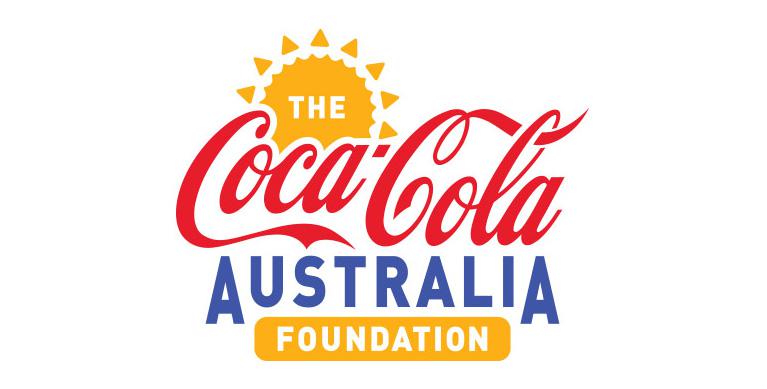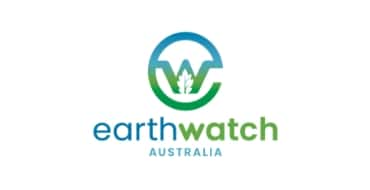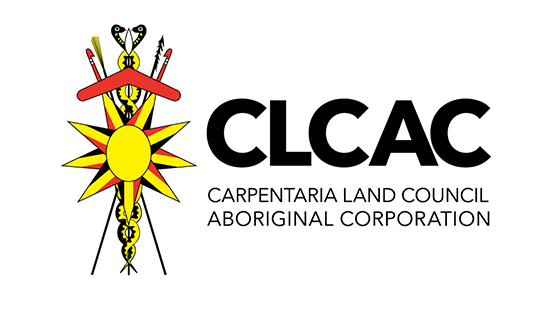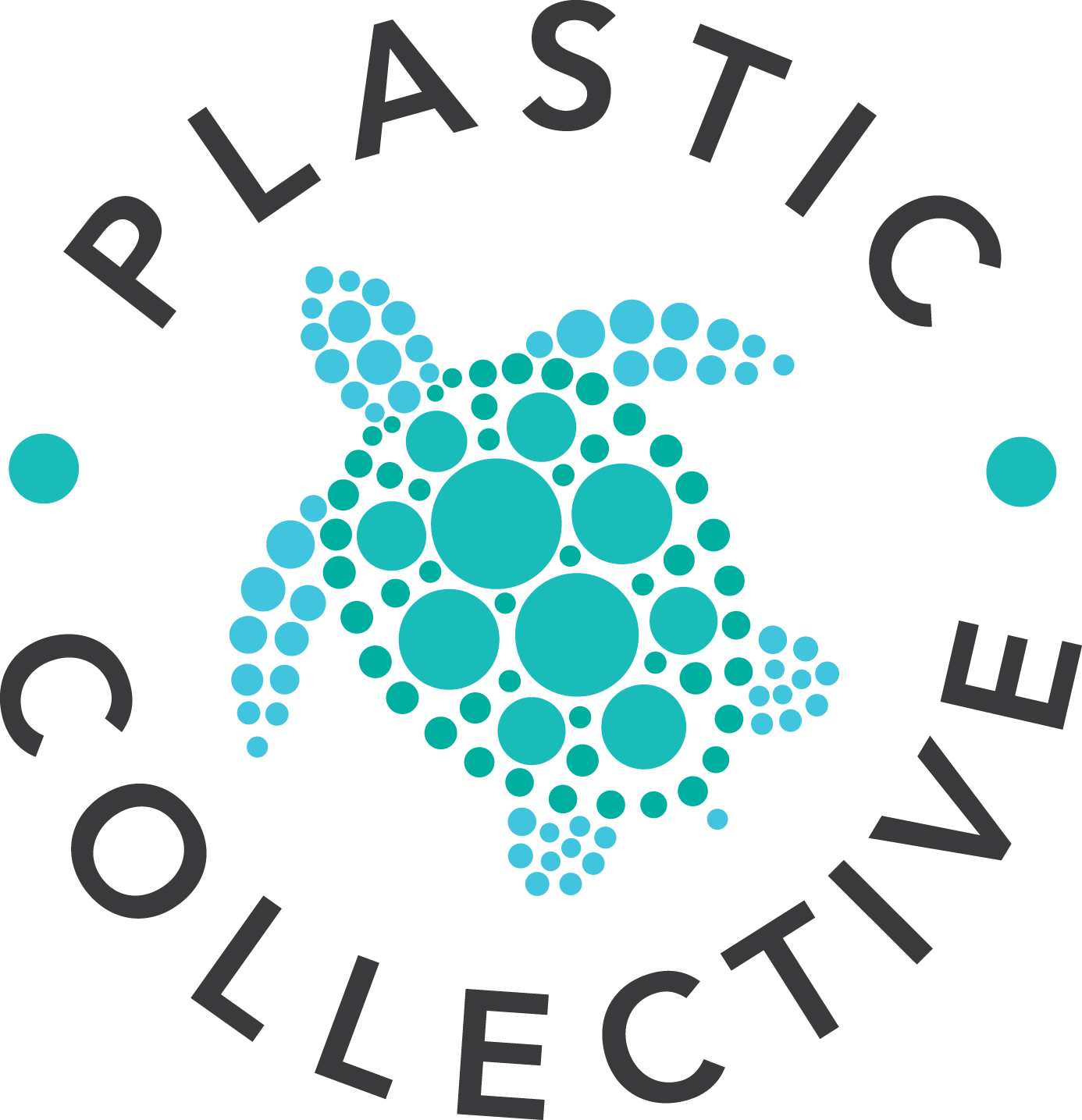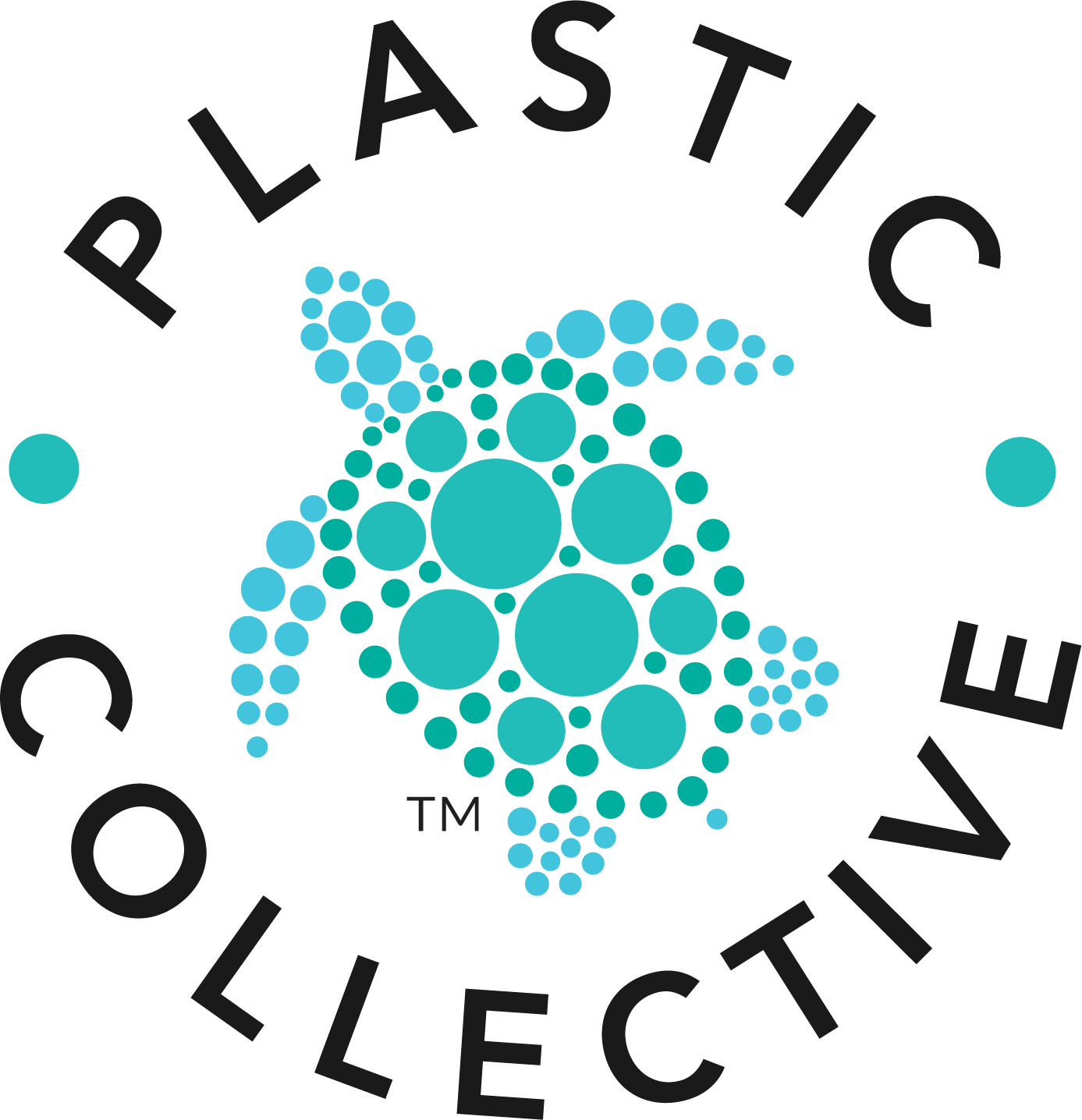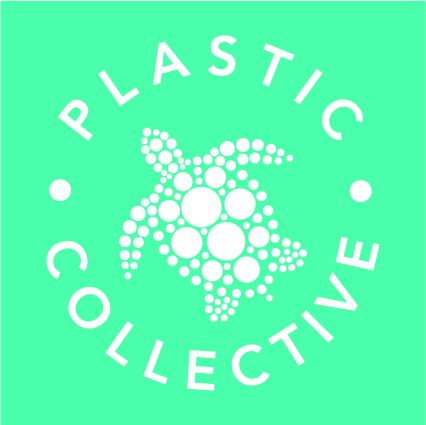Lower Gulf Indigenous Recycling Centre Kicks Off
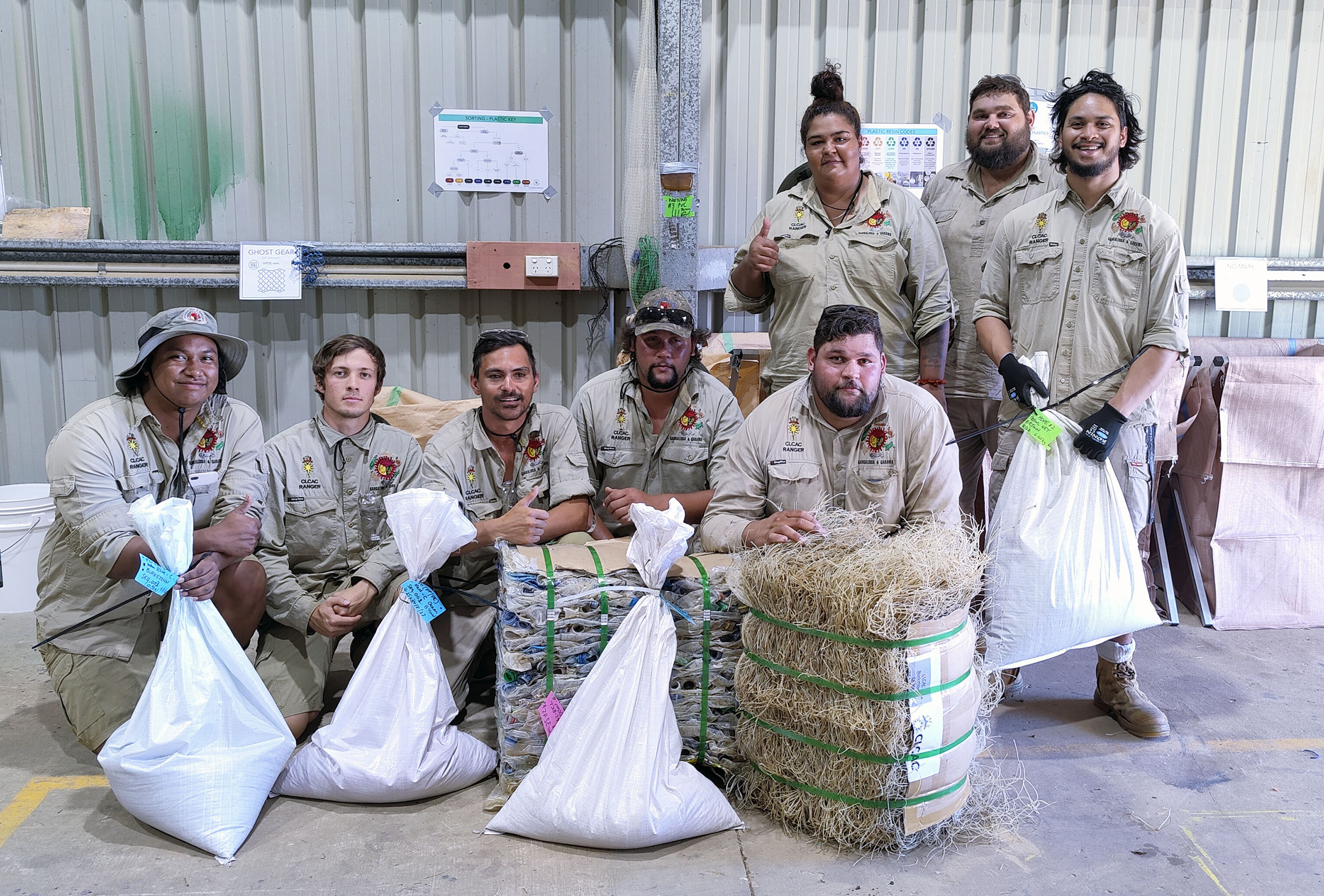
In August 2022, Plastic Collective delivered the final stage of an Indigenous Recycling Centre in the Gulf of Carpentaria.
In response to the largest die-back of mangroves witnessed in the Lower Gulf region in 2016, a project focusing on mangrove health and plastic pollution was developed in a tripartite partnership of Plastic Collective (PC), Earthwatch Australia (EW) and the Carpentaria Land Council Aboriginal Corporation (CLCAC), funded by an environmental grant from Coca-Cola Australia Foundation.
After enduring two years of COVID lockdown delays, the plastics recycling program was finally set up in Burketown and Normanton. PC was responsible for training over 20 Indigenous Land and Environment Rangers in the identification and sorting of marine debris and household plastics, and processing to produce saleable materials.
EW had trained the Rangers in mangrove and saltmarsh identification, and five rounds of surveys have been undertaken as part of the project, which included marine debris transects and health monitoring of the mangroves
Collecting marine debris and ghost gear has long been part of the work the Land and Environment Rangers do in caring for country and protecting vital marine life habitats and turtle nesting grounds.
Cleanups in the local rivers and beaches regularly bring in over five tonnes of materials a year, however the disposal of this material in local landfills was a serious concern for CLCAC.
The flatness of the extensive southern gulf region meant that in the wet season, materials in dump sites could easily flow back into the river systems. The Rangers were keen to rescue the landfill volume for their communities and assist in keeping the waterways clean.
The process of sorting, granulating and baling materials turned 12 large bulk bags into a few bales and shred bags of condensed saleable materials. These can then be sold at a premium price to manufacturers, such as WAW Handplanes, as certified ocean plastics.
The main operational centre was set up in Burketown, where an existing warehouse was turned into a recycling centre to process the materials, eliminating the need to send over 70% of recovered marine debris and fishing nets to landfill.
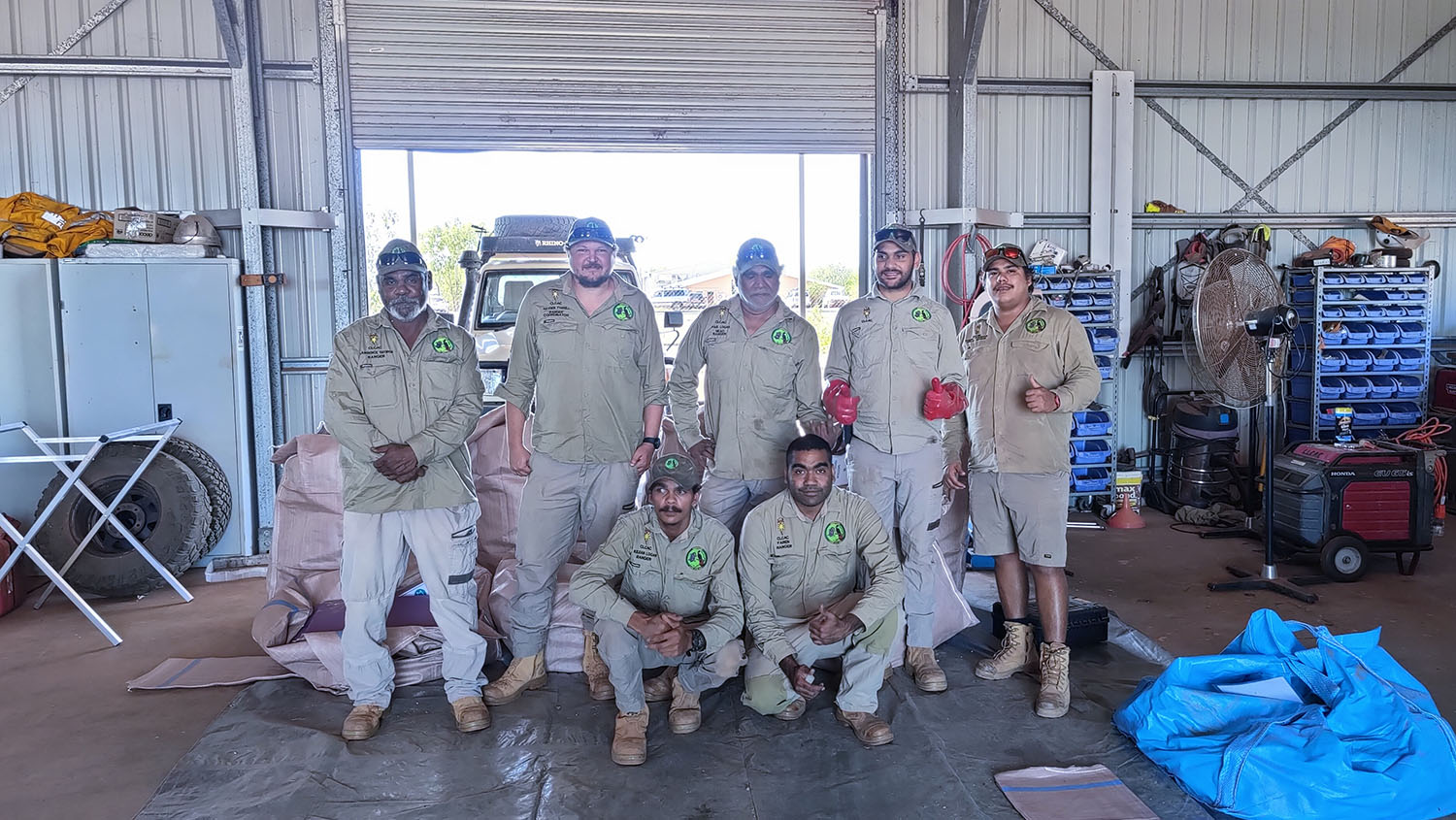
Normanton Rangers sorting collected marine debris onsite
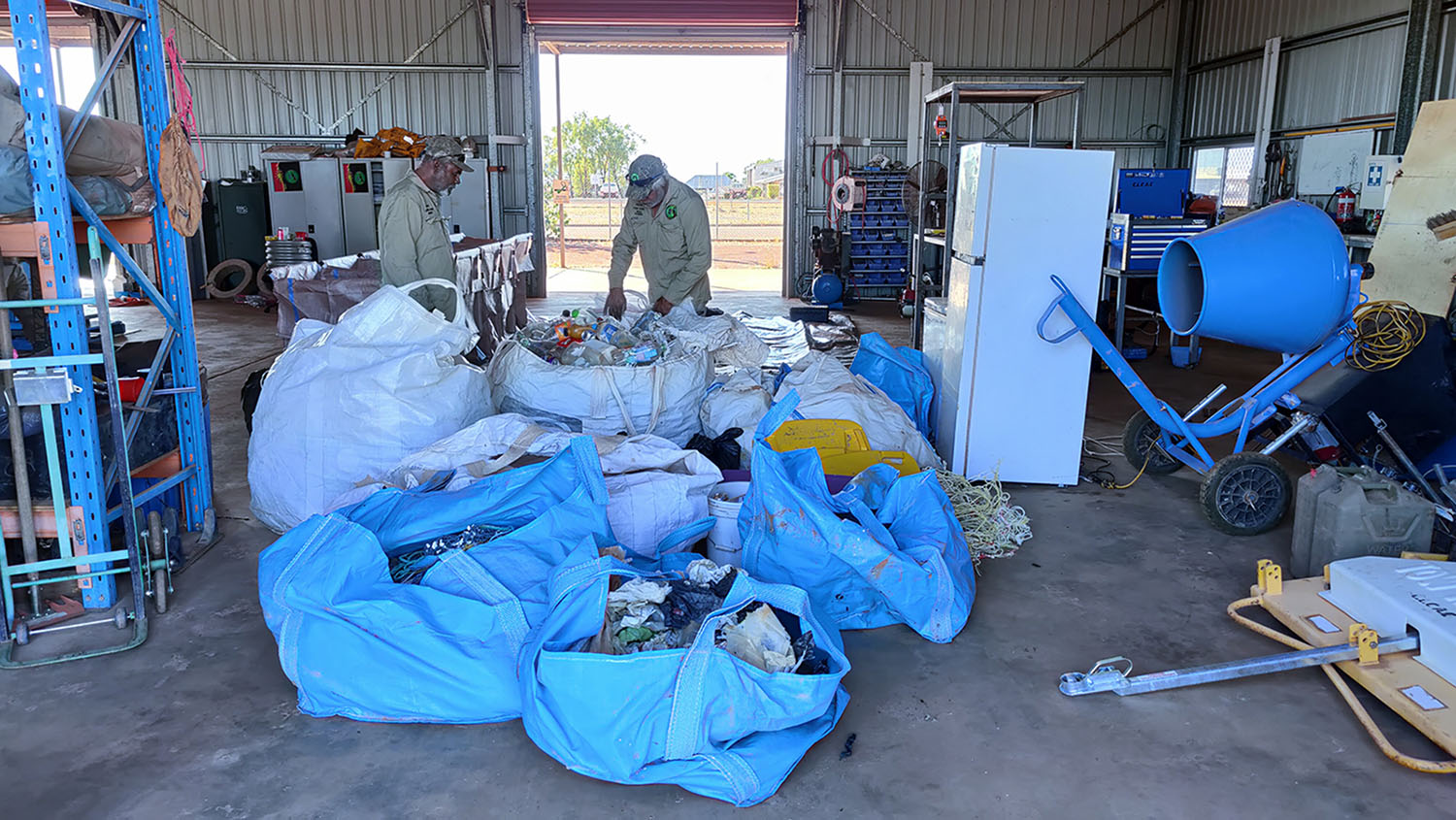
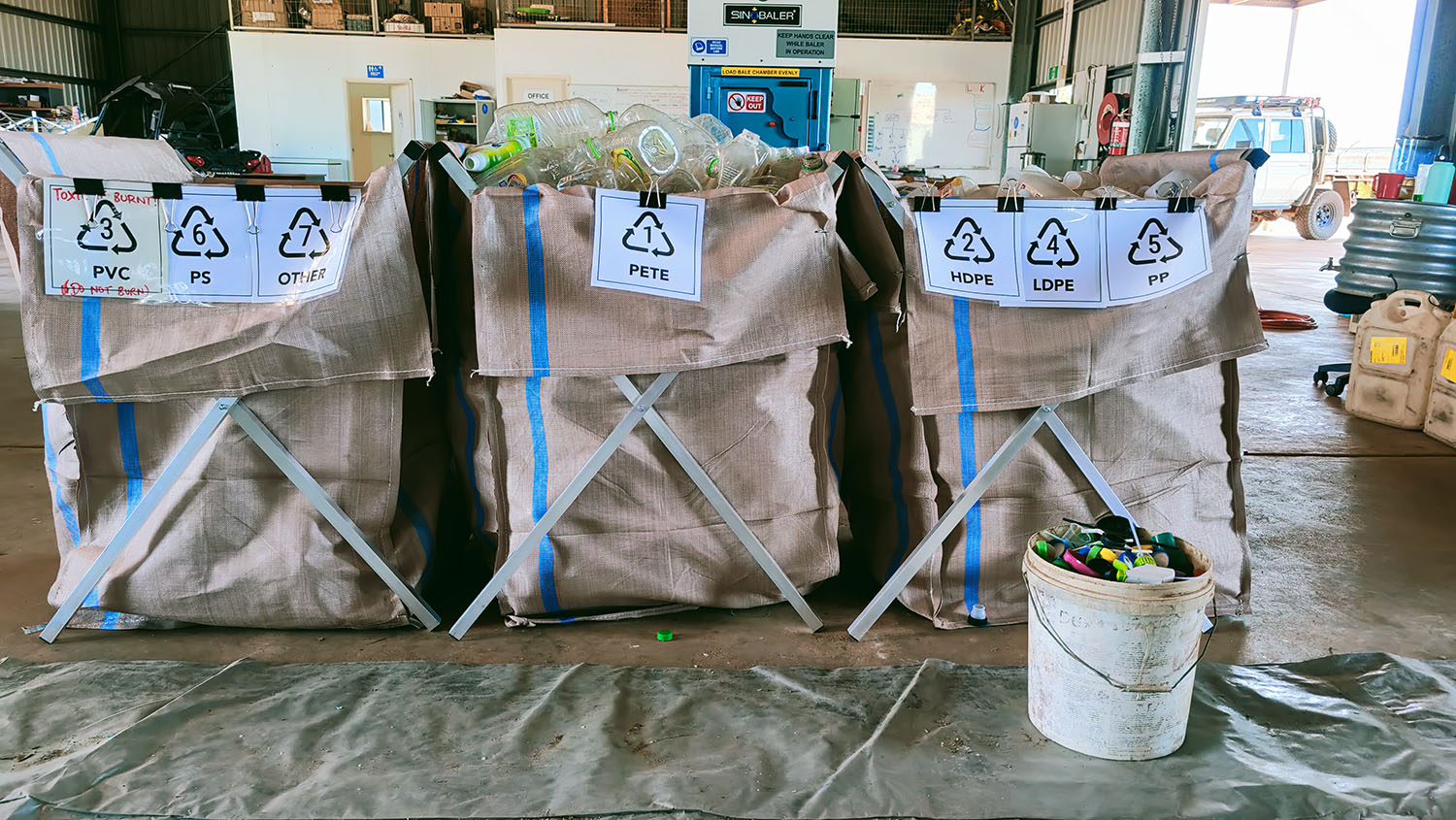
Sorting area at Normanton HQ
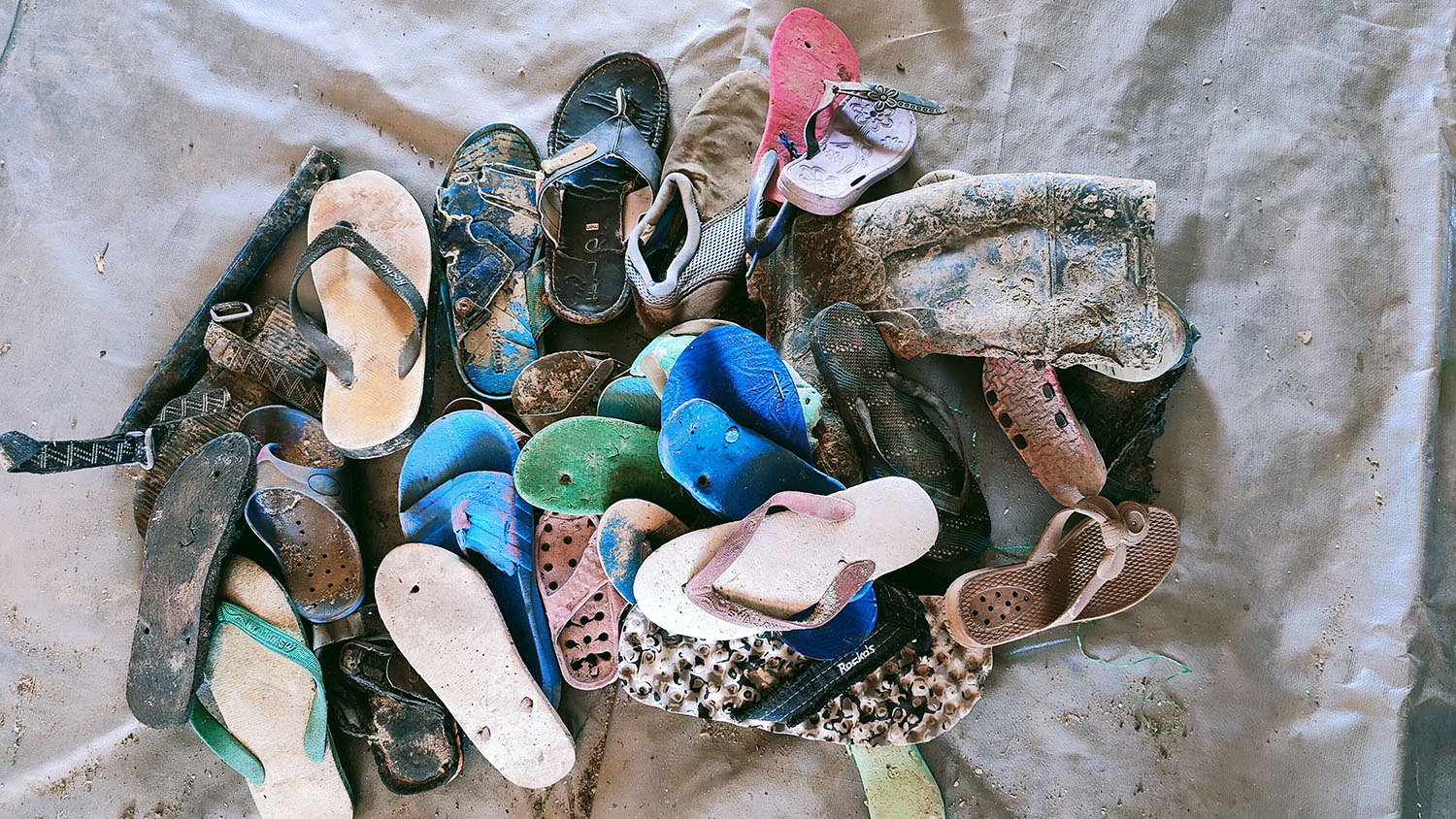
Rubber thong pile
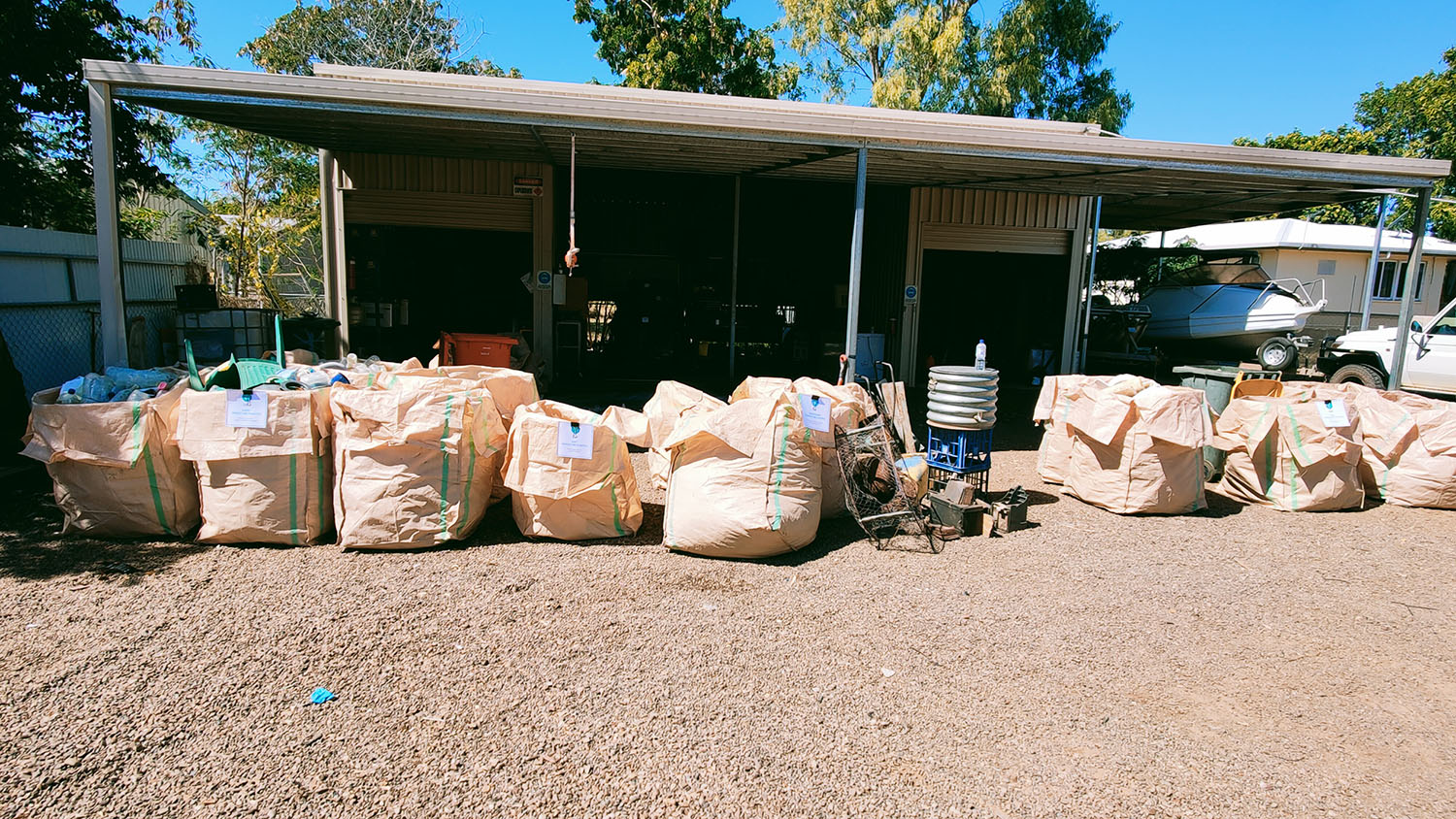
Ranger depot with bulk bags of materials collected during mangrove surveys
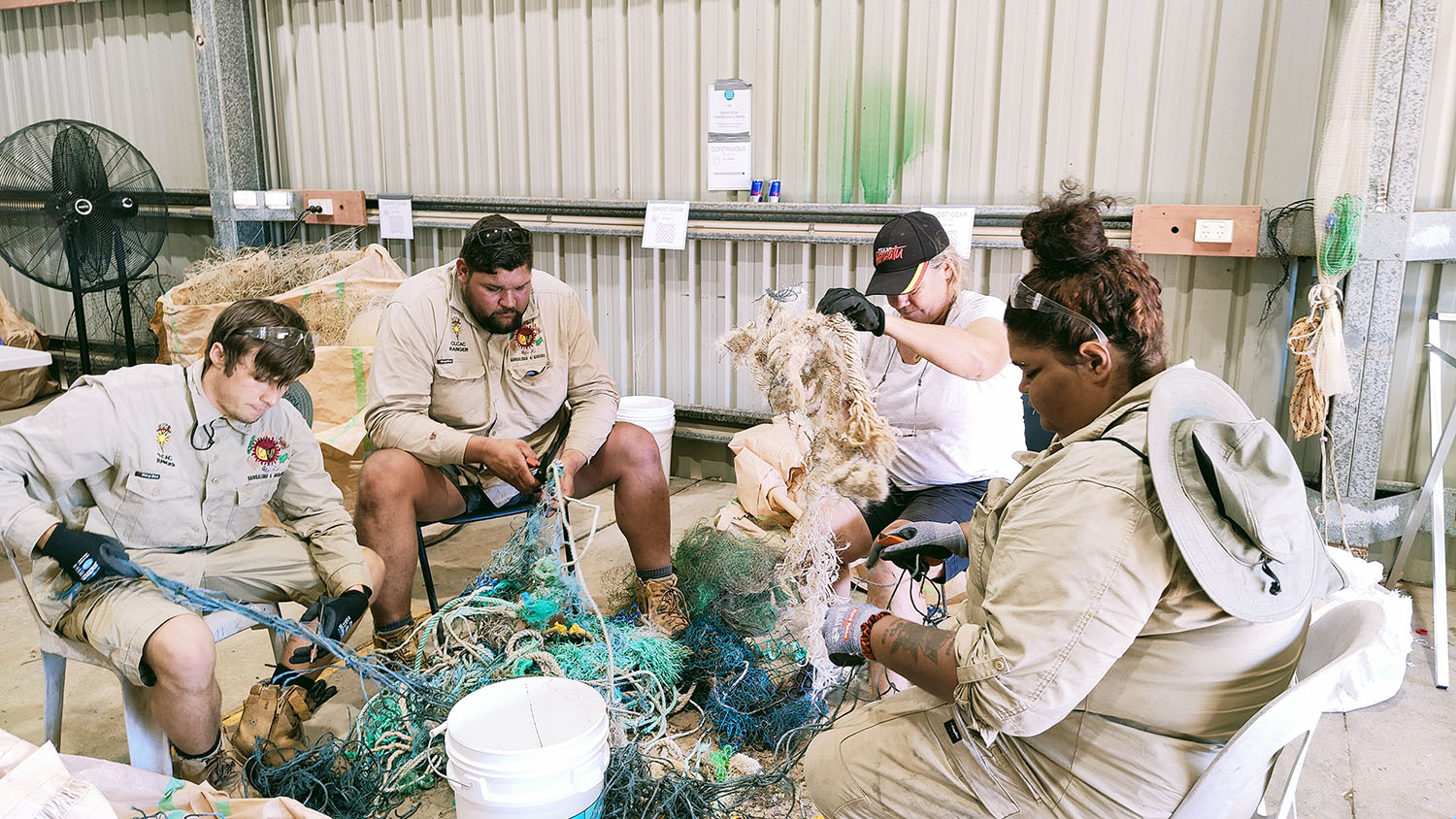
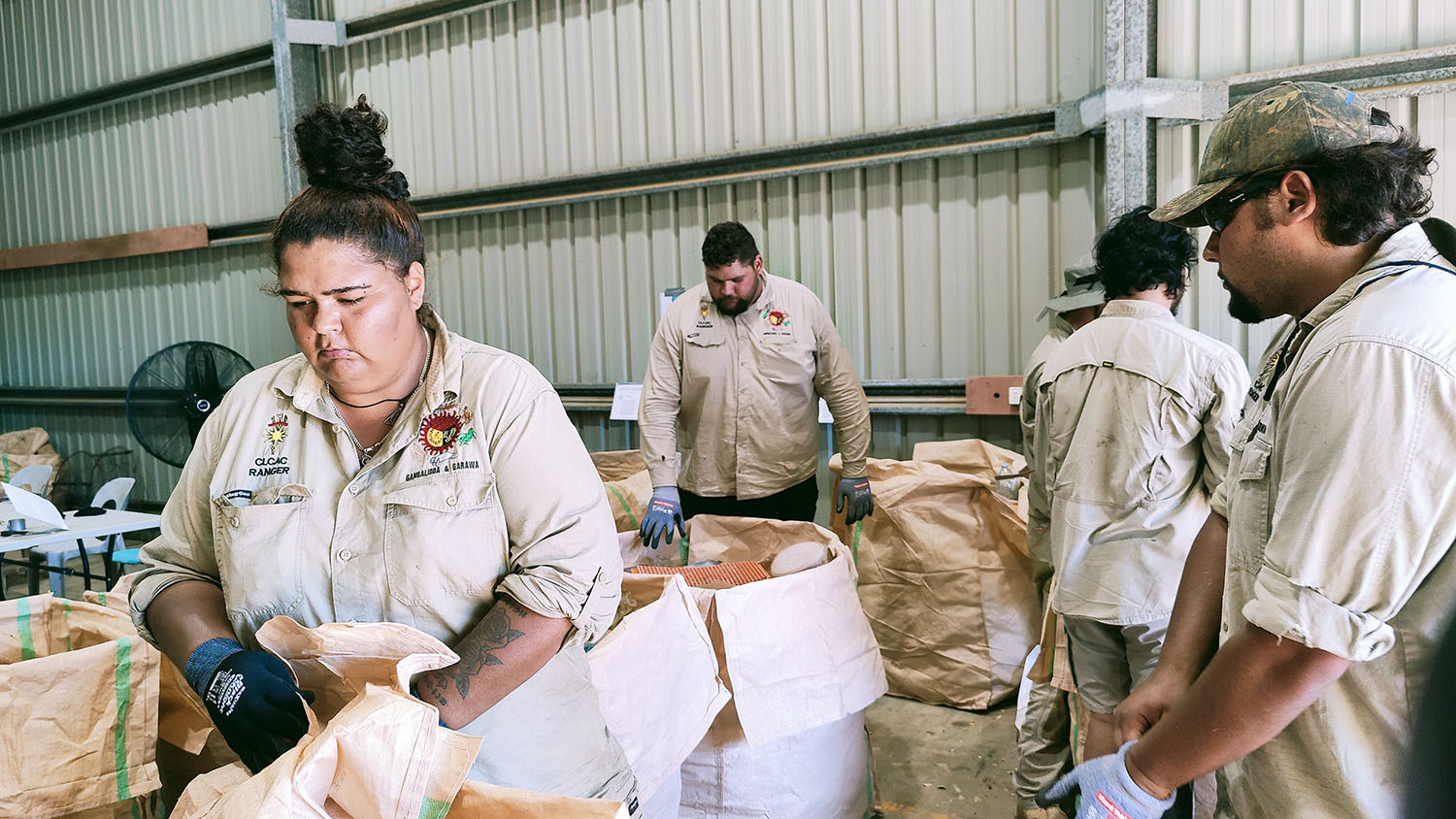
Burketown Rangers preparing collected materials and sorting into categories
Normanton Rangers sorted the materials into the categories, after which it was sent to Burketown for further processing at the facility.
During the five days of setup and training, just under half a tonne of marine debris and ghost gear were sorted into the following categories;
- hSUP (hard single use)
- sSUP (soft single use)
- GG (Ghost gear)
- nSUP (Non single use)
From the nSUP, the following categories were also added:
- Shoes
- Foam
- Reusables
- Waste – unrecyclables
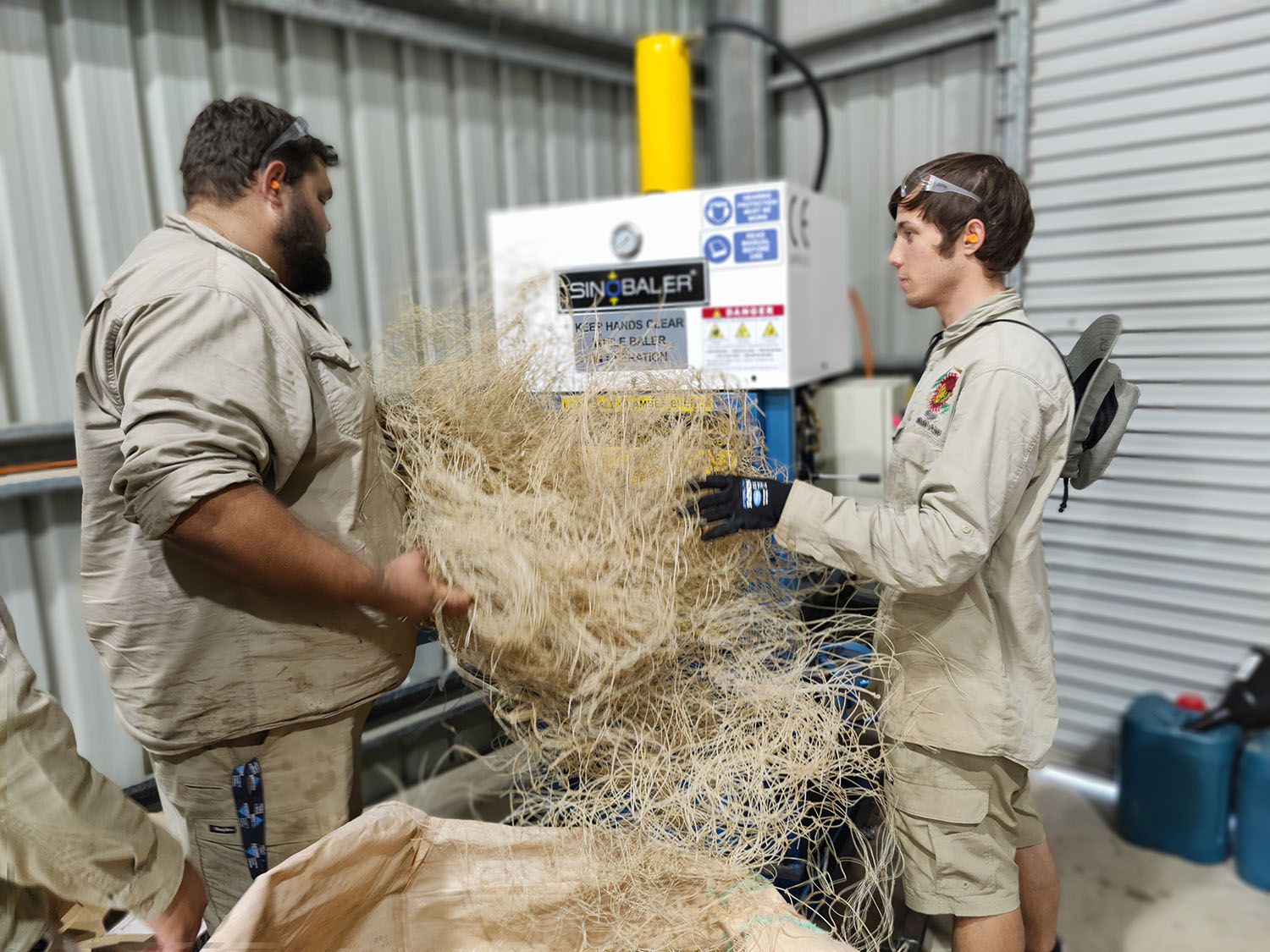
Burketown Rangers baling nets
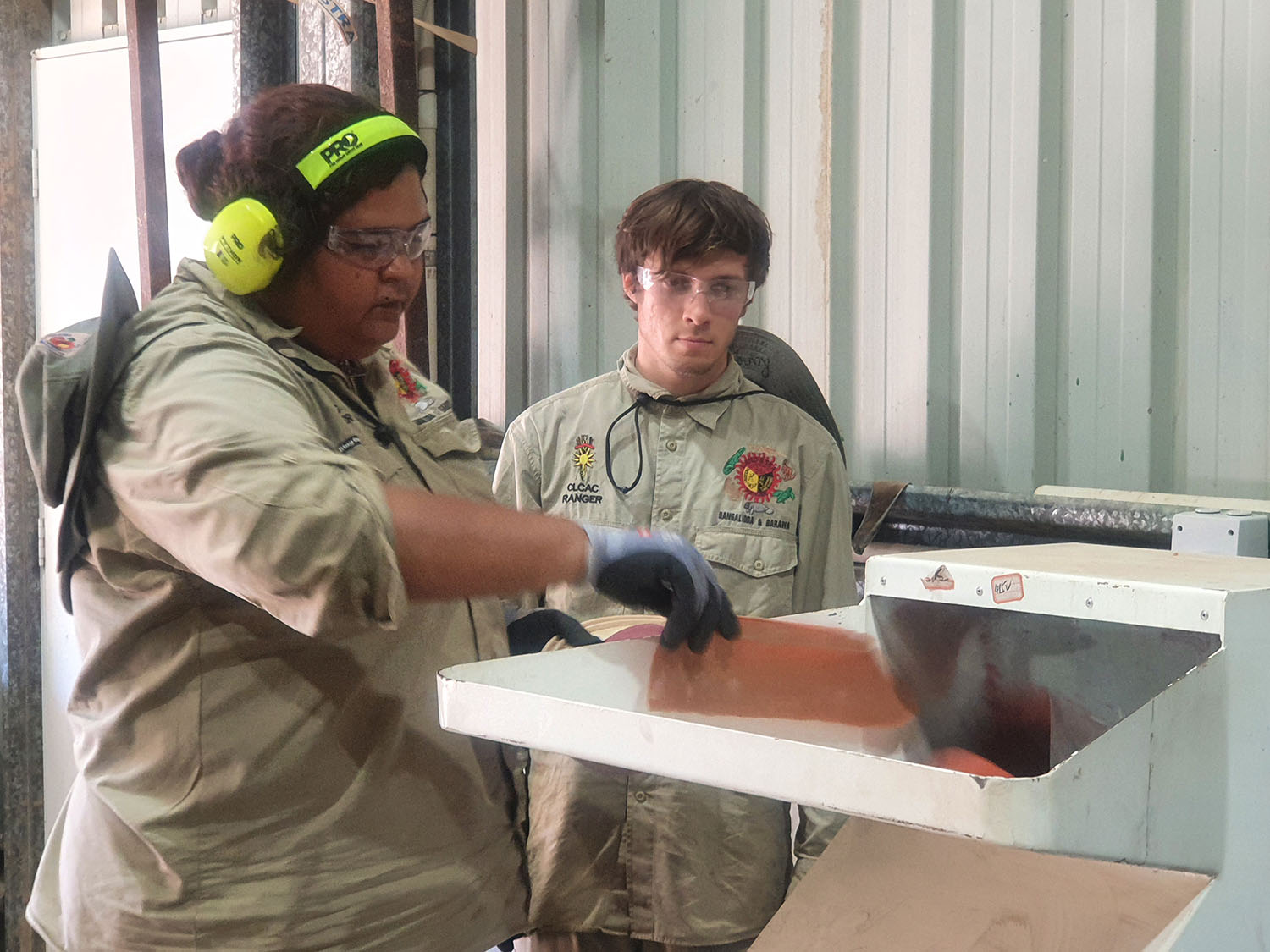
Burketown Rangers granulating marine debris and nets
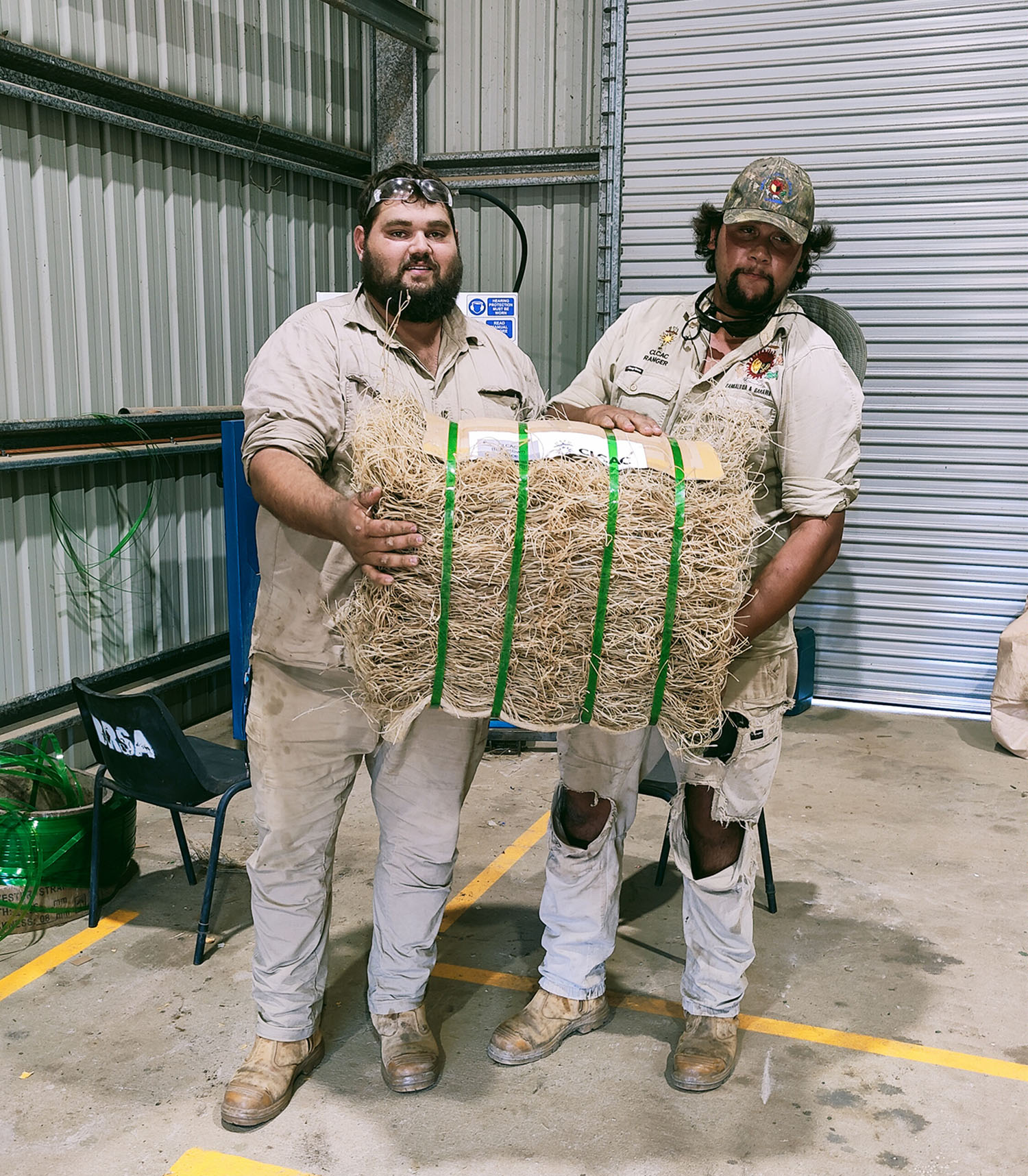
From the 457.4 kg of materials processed from the two sites 60% (270.9kg) of all marine debris and ghost gear was recycled into bales or grind for sale, 21% (97.3 kg) separated for reusable/ repurposing items and 19% (89.2 kg) remaining for landfill.
20 Rangers learnt about the global problem with plastics in the oceans, material knowledge and operating procedures using 3-phase granulators and balers, as well as record keeping, ethical and environmental compliance and enterprise essentials.

